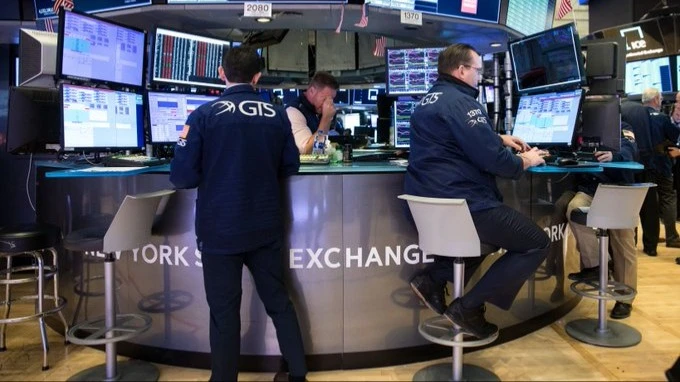"Traders rush to seek refuge": what Wall Street is saying about Israel's attack on Iran

Israel on the night of June 13 attacked Iran. Israeli Prime Minister Benjamin Netanyahu said Iran's nuclear weapons program was attacked. A state of emergency has been declared in Israel because of the threat of a retaliatory strike. Here's what analysts are saying about the stock market's reaction to the attack.
"Traders are rushing to find safe havens," said Carl Chamotte, chief market strategist at Corpay in Toronto, to Reuters. The Swiss franc and Japanese yen, traditional safe haven currencies, were adding 0.3-0.4 percent amid news of the attack, the agency reported.
Stocks in Asian trading are trading in the red zone: Japan's Nikkei 225 index was down 1%, China's Shanghai Composite index was down 0.5%, and Hong Kong's Hang Seng was down 0.4%. Futures on major U.S. stock indices were down about 1.5%.
"The airstrike on Iran is likely to sharply cool rising risk appetite in Asian markets - especially ahead of a weekend during which multiple flashpoints could erupt, any one of which could dramatically reshape both the geopolitical map and the financial landscape," quoted Bloomberg quoted Vantage Markets analyst Hebe Chen.
The developments show that while worst-case scenarios on duties have receded, markets are still facing high geopolitical uncertainty, said Westpac Banking chief economist Lucy Ellis. "There's also a bit of near-term inflation risk amplification through higher oil prices," she said.
The cost of Brent futures for delivery in August jumped 10.2% to over $76. Iran controls the northern coast of the Strait of Hormuz, which connects the Persian Gulf and the Gulf of Oman and through which about a quarter of the world oil trade passes. Iran has repeatedly threatened in the past to restrict transportation through the strait if national security is threatened. Earlier this week, JPMorgan warned that in a worst-case scenario in the Middle East, the price of oil could reach $130 a barrel. A sustained rise in energy prices could trigger a rise in global inflation, making it harder for central banks to deal with the effects of a trade war, Bloomberg notes.
"We are back in an environment of heightened geopolitical uncertainty, which is keeping the oil market on edge and demanding a higher risk premium for potential supply disruptions," says Warren Patterson, head of commodities strategy at ING Groep NV.
"The attack came at a critical time when macroeconomic and systematic funds have regained long positions and investor sentiment has become optimistic again," quoted by Bloomberg quoting IG strategist Tony Sycamore. - As we wait for further news and a possible response from Iran, we can assume a further decline in risk appetite as traders reduce risk positions ahead of the weekend".
It is highly likely that Iran will retaliate this weekend, says JonesTrading chief market strategist Michael O'Rourke. "That will cause people to stay on the sidelines [of the market] and remain somewhat cautious," he believes.
"Whether the risk aversion persists now depends on the next 24 to 48 hours," says Chanana. - If Tehran reacts with restraint and energy commodity flows remain uninterrupted, the risk premium, as experience has shown, could dry up rather quickly. But any sign of retaliation or supply disruptions will keep volatility high and push oil and safe haven asset prices up."
The threat of a retaliatory strike from Iran is adding to uncertainty and encouraging investors to flee into safe haven assets, says Saxo Capital Markets strategist Charu Chanana. "With markets already on edge and risk sentiment worsening, gold is likely to continue to be in demand as a hedge - not only against the risk of conflict but also its potential impact on inflation and volatility," she says.
The spot gold price rose 1.1% to $3424.79 per ounce Friday morning. This is just $75 below the historical record reached in April.
